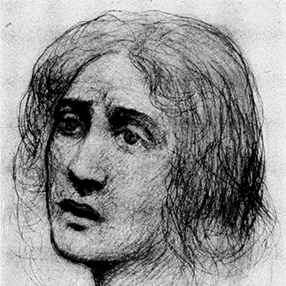[When night draws on, remembering keeps me wakeful]
translated from the Arabic by Reynold A. Nicholson
When night draws on, remembering keeps me wakeful
And hinders my rest with grief upon grief returning
For Ṣakhr. What a man was he on the day of battle,
When, snatching their chance, they swiftly exchange the spear-thrusts!
Ah, never of woe like this in the world of spirits
I heard, or of loss like mine in the heart of woman.
What Fortune might send, none stronger than he to bear it;
None better to meet the trouble with mind unshaken;
The kindest to help, wherever the need was sorest:
They all had of him a boon—wife, friend, and suitor.
O Ṣakhr! I will ne’er forget thee until in dying
part from my soul, and earth for my tomb is cloven.
The rise of the sun recalls to me Ṣakhr my brother,
And him I remember also at every sunset.
This poem is in the public domain. Published in Poem-a-Day on April 1, 2023, by the Academy of American Poets.
“[When night draws on, remembering keeps me wakeful]” appears in Reynold A. Nicholson’s Translations of Eastern Poetry and Prose (Cambridge University Press, 1922). The Arabic original was written at some point during the life of al-Khansāʾ, who is believed to have lived from 575–646 AD. The poem is an elegy, or marthiyah in Arabic, for al-Khansāʾ’s half-brother Ṣakhr, who was killed during intra-tribal conflict (the medieval Arabic custom of elegy writing, called rithāʾ, was primarily the domain of women). As Nicholson himself writes in A Literary History of the Arabs (Charles Scribner’s Sons, 1907), “Among Arabian women who have excelled in poetry the place of honour [sic] is due to Khansāʾ—her real name was Tumāḍir—who flourished in the last years before Islam. By far the most famous of her elegies are those in which she bewailed her valiant brothers, Muʿāwiyah and Ṣakhr, both of whom were struck down by sword or spear. It is impossible to translate the poignant and vivid emotion, the energy of passion and noble simplicity of style which distinguish the poetry of Khansāʾ [. . .].”

